'Tis the season of giving, and San Jose medical marijuana dispensary MedMar Healing Center is giving back to the community with a food drive to benefit Second Harvest Food Bank. From October 1st through January 20th, MedMar is joining together with other San Jose cannabis collectives to collect money and cans of food to help Second Harvest provide nutritious meals to local families in need.
"This holiday season, many families are having a hard time making ends meet. It is MedMar's hope that we can help make this holiday season amazing for every family, even in these hard economic times," says Douglas Chloupek, founder of MedMar.
Second Harvest Food Bank serves over 240,000 people each month-10% of the people in Santa Clara and San Mateo counties-and distributes over 45 million pounds of food per year, mainly to local seniors and families with dependant children. Since the recession hit in 2007, the number of people served by Second Harvest has skyrocketed 48%, but donations have flatlined over the last two years.
The holiday season, when Second Harvest gets the majority of its donations, will be critical to ensuring the food bank can help hungry members of the community get access to nutritious meals. The food bank's goal is to raise $11.3 million and collect 1.6 million pounds of food.
MedMar members who bring in nonperishable food items will get a $1 credit per can donated ($10 daily limit). The most-needed items are meals in a can (stew, chili, soup), tuna and canned meat, peanut butter, canned foods with pop-top lids, low-sugar cereals, 100% fruit juices in single-serving boxes, canned fruit packed in juice, and canned vegetables. MedMar is also accepting cash donations that will be passed along to Second Harvest.
вторник, 20 декабря 2011 г.
Cigarettes stolen from Smithfield shop

Someone broke into a smoke shop off Seven Bridges Road in Smithfield Township and made off with 21 cartons of cigarettes.
The shop, called Smokes R Us, was burglarized at 2:42 a.m. Saturday morning.
The thief or thieves, according to police entered the store by shattering a back window with a hammer. About $100 of cigarettes were stolen from the store.
The suspect was described as 5 foot 8 inches, of unknown gender, with a medium build and wearing gloves, a mask, a white-hooded sweatshirt, white hat and black pants.
Cigar Smokers Resist Possible FDA Rules

Cigar smokers are trying to raise their profile in Washington, D.C., in advance of what they expect will be new regulations from the U.S. Food and Drug Administration (FDA).
Cigar Rights of America, a group that represents smokers, filed registration papers on Thursday to lobby Congress on legislation that would eliminate any FDA authority over cigars.
It is the first time the group has registered to lobby. The group was founded in 2009, the same year that Congress, after decades of debate, granted the FDA the authority to regulate cigarettes and other items that the agency says fall within the law's definition of "tobacco products."
"The cigar consumers of America have basically never thought a lot of the things that have happened would happen to them," said Glynn Loope, the Cigar Rights of America's executive director.
Those challenges include proposed tax increases and state and local smoking bans. The FDA has not proposed any restrictions on cigars - excluding them from requirements such as new warning labels - but it said in July it is planning to include them in its definition of "tobacco products."
Health advocates say Congress should not roll back the authority of the FDA because it is in the best position to evaluate who is using a product and what the impact is.
"The reason Congress gave FDA authority is so that the decisions would be made based on facts and science, and not political muscle," said Matt Myers, president of the Campaign for Tobacco-Free Kids.
FDA spokeswoman Stephanie Yao declined to comment on when the agency would issue a formal, proposed definition, but industry advocates said they are planning as if they will see something in early 2012.
Central to the argument of the Cigar Rights of America is that traditional cigars are different from cigarettes or the inexpensive, flavored cigars sold in some U.S. shops.
"The very price point of cigars puts them out of the hands of youth," Loope said.
The smokers' group has backing from cigar manufacturers and retailers, which together make up most of its funding so far, Loope said. He declined to give the group's membership but said it has individual members in all 50 states.
понедельник, 12 декабря 2011 г.
Cigarettes go 'under the counter' at a Tesco store

The store is trialling the scheme to cover up its tobacco products. By law, all stores will have to do this by April next year.
The Government hopes this "under the counter" approach will further hit tobacco promotion and put more people off smoking.
The aim is to cut down the number of smokers in England from 20 per cent of adults to 18.5 per cent by 2015.
Tobacco products must be kept out of sight in large stores and supermarkets by April 2012. Smaller stores will have to make the change by April 2015.
Tesco are testing the new displays in a handful of their 2,865 stores across the UK, including the Market Harborough store, in The Square.
A Tesco spokesman said: "We are beginning to trial a new kiosk display in a small number of stores starting with Market Harborough to ensure it will comply with the law and, at the same time, work for both our staff and our customers."
Public health minister Anne Milton said: "We welcome this move by Tesco in Market Harborough.
"Tobacco displays will come to an end in supermarkets in April next year, and in all shops in 2015.
"This will help discourage young people from taking up smoking and help adult smokers who are trying to quit."
Shoppers praised the store's new initiative.
Dave Allen, of Nelson Street, Market Harborough, said: "I think it is an excellent idea.
"Cigarette manufacturers spend an awful lot of money making their products look sexy and appealing.
"If young kids have to ask specifically for cigarettes I don't think it will be quite so appealing."
The 53-year-old concert promoter said: "I think it is great the Market Harborough store is doing this.
"It's a step forward in the right direction."
Clara Taylor, 26, an engineering project assistant from Braybrooke, said: "It's a really good idea – it puts them out of people's minds.
"I don't smoke but I think people buy cigarettes because they are there – if they are not there it is slightly less tempting.
"If people are giving up smoking it will be good for them."
Nick Shaw, 32, who works at Harborough FM radio, said: "It was strange to see no cigarette products on display to start with. You would think they don't sell them anymore.
"I think it will put people off buying cigarettes. I am a smoker myself, but they won't be there for young people to look at."
Excise hike on cigarettes, motor tax to go up
Finance Minister Michael Noonan has said that to protect vulnerable people in society, he is proposing to provide a waiver of the household charge of €100 per dwelling for those on mortgage interest supplement and those in certain categories of unfinished housing estates. Provision will also be made to allow payment of the €100 in instalments.
The household charge is set to raise €160m a year and is an interim measure pending the design and implementation of a full property tax from 2014.
The Minister also said he is initiating a consultation period with the motor industry and other interested parties to start early next year to review options for the improvement in VRT and motor tax in future years.
But in the meantime, the Minister for Environment, Community and Local Government Phil Hogan will make a provision for an increase in motor tax from January 1. Mr Noonan said this will generate about €47m in 2012 to be used for Exchequer deficit reduction proposals.
Figures released with the Budget show that motor tax for cars in CO2 emission band A will rise from €104 to €160 while band B goes up from €156 to €225. These are the two biggest CO2 categories of cars for motor tax. More details were published by the Department of Finance.
He also said the Finance Department will engage in a consultation process with the car industry to put in place an export refund scheme which would allow for a refund of VRT on a vehicle on the permanent export of the vehicle to another member state in the European Union.
The Minister said that excise duty on a package of cigarettes will rise by 25 cent from midnight tonight. He said the 2% VAT increase will apply to alcohol but excise will not be increased.
He also said that the Minister of State at the Department of Health, Roisin Shorthall, will legislate to deal with the issues identified in a report on the causes and consequences of alcohol abuse in 2012, including the low cost of drink sold in off-licences and supermarkets.
Legislation to facilitate the extension of betting duty to remote betting will also be introduced as well as the introduction of betting intermediates duty to cover betting exchanges, the Minister said.
In an effort to combat absenteeism in the workplace, Minister Noonan said he is removing the existing tax exemption for the first 36 days of illness benefit and occupational injury benefit so that this incentive to absenteeism is removed.
He also said that Joan Burton, the Minister for Social Protection, will bring forward proposals to deal with absenteeism in both the public and private sectors next year.
Finance Minister Michael Noonan, in wrapping up his Budget speech, said the core mission of the Government is to get Ireland working again.
The household charge is set to raise €160m a year and is an interim measure pending the design and implementation of a full property tax from 2014.
The Minister also said he is initiating a consultation period with the motor industry and other interested parties to start early next year to review options for the improvement in VRT and motor tax in future years.
But in the meantime, the Minister for Environment, Community and Local Government Phil Hogan will make a provision for an increase in motor tax from January 1. Mr Noonan said this will generate about €47m in 2012 to be used for Exchequer deficit reduction proposals.
Figures released with the Budget show that motor tax for cars in CO2 emission band A will rise from €104 to €160 while band B goes up from €156 to €225. These are the two biggest CO2 categories of cars for motor tax. More details were published by the Department of Finance.
He also said the Finance Department will engage in a consultation process with the car industry to put in place an export refund scheme which would allow for a refund of VRT on a vehicle on the permanent export of the vehicle to another member state in the European Union.
The Minister said that excise duty on a package of cigarettes will rise by 25 cent from midnight tonight. He said the 2% VAT increase will apply to alcohol but excise will not be increased.
He also said that the Minister of State at the Department of Health, Roisin Shorthall, will legislate to deal with the issues identified in a report on the causes and consequences of alcohol abuse in 2012, including the low cost of drink sold in off-licences and supermarkets.
Legislation to facilitate the extension of betting duty to remote betting will also be introduced as well as the introduction of betting intermediates duty to cover betting exchanges, the Minister said.
In an effort to combat absenteeism in the workplace, Minister Noonan said he is removing the existing tax exemption for the first 36 days of illness benefit and occupational injury benefit so that this incentive to absenteeism is removed.
He also said that Joan Burton, the Minister for Social Protection, will bring forward proposals to deal with absenteeism in both the public and private sectors next year.
Finance Minister Michael Noonan, in wrapping up his Budget speech, said the core mission of the Government is to get Ireland working again.
New York smokers seek roll-your-own refuge
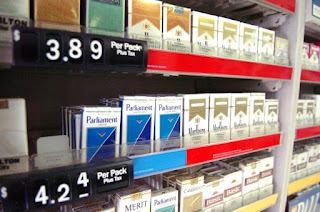
A new "roll-your-own" tobacco company in New York sells cigarettes for one-third of the normal price and claims its cigarettes are less harmful than those bought by the pack. Authorities say the stores are breaking the law and want them shut down.
New York is fast becoming a virtually smokeless city.
A citywide ban on smoking in public and heavy taxes at the cash register have discouraged smokers unwilling to pay between $11 and $15 (£7.00-£9.60) for a pack. Only 14% of New Yorkers now smoke, according to official statistics.
Loyal smokers, meanwhile, felt besieged, at least until May, when the first "roll-your-own" cigarette store opened.
Now, two Island Smokes stores in Manhattan and Staten Island sell loose tobacco and paper tubes to customers who use machines on site to roll their own cigarettes.
'Illegal' sales
Continue reading the main story
“
Start Quote
No one would claim that Ikea is not selling furniture just because the clients have to assemble that”
Eric Proshansky
New York City lawyer
The finished product looks virtually identical to a pre-packaged cigarette but costs only one-third of the price - $3.80 for a pack. That is in part because taxes on loose tobacco are far lower than on manufactured cigarettes.
Customers say the smokes taste better and are healthier than mass-market cigarettes, despite the discount.
"Here the tobacco is more like the tobacco I remember from the 70s, like real tobacco I smoked when I was younger," says Clarice Petillo, 51.
"The other cheap cigarettes you can find in the city are bootlegged, they are filled with nasty stuff."
Where smokers see a boon, city authorities see violations of numerous tobacco manufacturing, sales and tax regulations. They say the roll-your-own shops hinder the city's efforts to get people to quit smoking, and they have filed a federal lawsuit against Island Smokes in an effort to shut them down and collect the back taxes.
Expanded smoking bans unlikely before summer

A widening of the county’s ban on smoking in public places likely wouldn’t go into effect until next July, assuming officials can agree on how to word the necessary ordinance, County Manager Mike Ruffin says.
Ruffin’s assessment capped a review of the proposal by County Commissioners earlier this month.
The meeting saw commissioners agree with Durham’s City Council that the law needs to retain designated smoking-allowed areas outside otherwise smoke-free facilities like the downtown bus station.
Commissioners also voiced worry that plans to address smoking on sidewalks outside city or county property, hospitals or Durham Tech could go awry.
One who was dubious, Commissioner Ellen Reckhow, noted that the ordinance in theory would require a smoker to extinguish his or her cigarette while walking past City Hall, even though smoking on the sidewalk would be allowed in much of downtown.
“It’s going to be awkward,” Reckhow said.
Similarly, “if all the smokers in the courthouse decide they need a break and go one block away [to light up], we could wind up getting complaints from a business or a church,” she said. “All we’ve done is move the issue.”
Reckhow added that while she “really [doesn’t] appreciate smoking” because he own mother died of lung cancer, she also likes “logical ordinances” that are easy for the public to understand.
“I don’t like the way this is a patchwork, because it doesn’t seem like it’s going to work,” she said.
Assistant County Attorney Bryan Wardell said officials already were figuring on changing the wording of the ordinance to address a concern of the city’s, namely that the original draft might inadvertently exempt state-owned sidewalks.
The amended wording will cover all sidewalks “maintained by the city or county,” which in practice means all those near the targeted facilities because local governments, not the N.C. Department of Transportation, handles sidewalk maintenance, Wardell said.
Commissioner Pam Karriker cautioned that she doesn’t want to see the ordinance become a tool used to harass those who are mentally ill or homeless.
“I want to make sure we don’t further stigmatize that population,” she said, arguing for the preservation of smoking-allowed areas outside facilities that serve them.
Commissioners Chairman Michael Page agreed, but acknowledged the possibility of sending “dual messages” because of the known harms of smoking.
County Health Director Gayle Harris said her department wants to widen existing no-smoking bans because there is “no safe level of exposure” to tobacco smoke.
Tobacco costs the U.S. about $200 billion in medical expenses and lost productivity each year, she said, adding that about 440,000 people die annually from tobacco-related conditions.
Read more: The Herald-Sun - Expanded smoking bans unlikely before summer
HPD Issues First Smoking Law Citations In Years

For the first time in more than four years, a Honolulu police officer has issued tickets to bar patrons for breaking the statewide smoking ban.
The owner and employees of Kelley O'Neil's Irish pub and grill on Lewers Street in Waikiki said a police officer ticketed three of its customers for smoking in the bar on a Sunday in October, in response to another customer who called 911 to report them.
The statewide law that's been in effect since November of 2006 prohibits people from smoking in restaurants, bars and other workplaces.
Kelly O'Neil's and a few other bars follow the letter of the law by posting no smoking signs, but still allow their customers to smoke, in violation of the law.
These are the first citations police have issued since a police officer ticketed someone for smoking at a Chinatown bar nearly five years ago, right after the law took effect.
"From what I understand, they didn't know how to issue them, they don't know how to go to court with them and I believe each, the gentleman who was cited has had his case extended more than once, for their purposes, to try to figure out from their end what they're doing," said Bill Comerford, owner of Kelley O'Neil's and three other bars is head of the Hawaii Bar Owners' Association.
He said one of the customers ticketed is from Hawaii and the other two were visiting from Guam.
Comerford said his three customers were issued summons requiring them to go to court, when they should have just been able to pay a fine, sort of like a parking or speeding ticket.
"We're asking our tourists now if they are cited here, if they didn't show up for it, there would be a bench warrant. Would they come back again? I don't think so. There are problems in this law," Comerford said.
Comerford declined to identify the bar customers who were cited, but said the Hawaii man went to court and was ordered to pay a $100 fine.
It's unclear what the outcome is of the cases of the men from Guam.
Comerford said state health department officials have told him bar owners could also be ticketed under the law, but none of them have been cited yet, as far as he knows.
"Do you know anybody in the world who's gonna call the police on themselves, for somebody else's actions? It's ludicrous. But that's what the law is. That's what the rules are," Comerford said.
The state health department said it's still working out an enforcement agreement with the police department, five years after the smoking ban took effect, and more than one year after the rules for the ban were signed by former Gov. Linda Lingle.
"We feel that we can get the strongest possible enforcement through working with the local police and law enforcement issues," said Julian Lipsher, the program manager of tobacco prevention and education for the state Department of Health. "It was really meant to be a self-enforcing, self-policing kind of law."
After the ban took effect five years ago, the Health Department had to develop rules and regulations for the new law, working with lawyers at the state attorney general's office to do so. State health officials said rule making usually takes two years, but this process took nearly four years.
The health department held public hearings across the state and appeared three times before the state's Small Business Regulatory Review Board, which Lipsher said didn't like the new regulations.
Lipsher said health officials had to repeatedly meet with the board, "To provide clarification of what the law was about, and to provide explanation and development of rules and how they would affect small business."
Lingle, a Republican, signed the rules last August and they finally took effect Sept. 6, 2010, nearly four years after the smoking restrictions became law. Lingle was lobbied heavily by business leaders not to sign the law, according to opponents of the restrictions.
Violators of Ohio smoking ban owe state $1.8M

Five years after Ohio enacted a ban on indoor smoking, businesses still owe the state almost $2 million in fines for violating the law.
The Springfield News-Sun reported businesses statewide have been fined more than $2.74 million since enforcement of the ban began. Ohio Department of health numbers show businesses still owe more than $1.82 million as of Dec. 5.
The ban is being challenged before the Ohio Supreme Court by a Columbus bar that says it's unconstitutional.
Health department official Mandy Burkett said a number of businesses just aren't paying their fines.
Burkett said the health department and the Ohio Attorney General's office are trying to improve compliance. The department is turning over some of the unpaid fines to the attorney general's office for collection.
Medical marijuana shows promise for pain
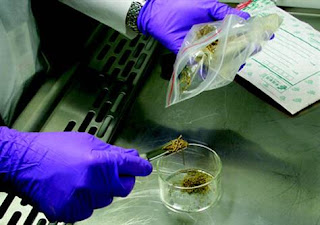
After all the usual and proper medical approaches did nothing for her pain, Cheryl Campbell, a nurse and mother, says she finally built up the courage to ask her doctor, "How do you feel about prescribing me marijuana?"
The 30-year-old Ottawa woman suffers from fibromyalgia and chronic fatigue syndrome. Her pain is body-wide - a constant, sometimes stabbing ache in her back, hips, knees, shoulders and virtually every joint. Doctors once put her on morphine. It cut the pain, but she couldn't function. She says her mind felt so heavy with fog she couldn't carry on a conversation.
She's been using marijuana for pain for two years; she has a federal licence to possess it. She says it helps her sleep at night. In the morning, it helps ease the stiffness in her hips and back enough that she can make it into the shower.
Campbell says she owes her ability to get through each day to a drug that critics condemn, especially when it's smoked - which is how most of the thou-sands of Canadians who self-medicate with pot prefer to take it. The U.S. Drug Enforcement Agency was unequivocal earlier this year: Smoked marijuana is not medicine, and it's not safe.
"No matter what medical condition has been studied," the agency ruled, "other drugs already approved by the [U.S. Food and Drug Administration] have been proven to be safer than smoked marijuana."
But research into medicinal marijuana is undergoing a surge of interest, with more evidence emerging not only of its ability to ease human suffering, but also of its apparent safety.
Some say cannabis may be less toxic to humans than over-the-counter pain relievers.
Four small but scientifically controlled experiments in recent years have concluded that smoked cannabis can provide moderate relief from chronic, severe non-cancer pain - including HIV-related nerve pain and post-traumatic neuropathy, a dreaded condition that can follow an injury or medical procedure. Both are notoriously resistant to conventional treatments.
среда, 16 ноября 2011 г.
Imperial Tobacco Group (ITYBY) Shares Downgraded to a “Sell” Rating by Goldman Sachs
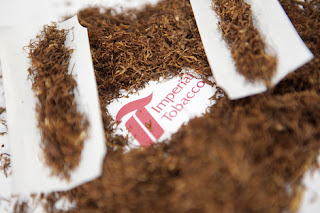
Imperial Tobacco Group (NASDAQ: ITYBY) was downgraded by equities research analysts at Goldman Sachs (NYSE: GS) from a “neutral” rating to a “sell” rating in a research note issued to investors on Tuesday.
Separately, analysts at Societe Generale initiated coverage on shares of Imperial Tobacco Group in a research note to investors on Thursday, October 6th. They set a “buy” rating on the stock.
Stay on top of analysts' coverage with our daily email newsletter that provides a concise list of analysts' upgrades, analysts' downgrades and analysts' price target changes for each day.
Police searching for suspect in tobacco store robbery

Police are searching for the man who robbed a north Knoxville tobacco store around noon on Tuesday. The clerk told authorities the suspect walked into the Tobacco King, 2001 N. Broadway, and tried buying a soda with some change. When he opened the cash register, the suspect reportedly came around the counter and pointed a black semi-automatic gun at him. The suspect grabbed cash from the register and took off on foot.
Witnesses said they saw the suspect get into a cream, mid-90s minivan with maroon stripes and took off heading south on Broadway. The suspect was described as a clean-shaven, white man six feet tall around 200 lbs. in his mid-30s with short dark hair and blue eyes. He was wearing blue jeans, a blue long sleeve shirt with stripes, and a dark color t-shirt underneath.
Delco Tobacco-Free Coalition Supports Great American Smokeout

The Delaware County Tobacco-Free Coalition invites you to Iron Hill Brewery in Media to support the 36th Great American Smokeout (GASO) on Wednesday, Nov. 16.
GASO is an annual national event encouraging Americans to stop tobacco smoking. The coalition is hosting a fundraising event at Iron Hill; with a GIVE 20 percent coupon, Iron Hill will donate 20 percent of your food bill (excluding alcoholic beverages) to the coalition, to help make the environment tobacco and smoke-free.
Iron Hill Brewery is joined by other local supporters of the Delaware County Tobacco-Free Coalition. Fellini's Cafe and Ariano's in Media have both donated $50 gift cards for their restaurants that the coalition is currently raffling off.
You can also send cash or a check to the Delaware County Tobacco-Free Coalition, located at 126 E. Baltimore Ave., Media, PA 19063. You will receive a receipt/ticket in the mail. The drawing will take place on Thursday, Nov. 17. The winners will be contacted by phone or email.
The Delaware County Tobacco-Free Coalition concentrates on reducing and eliminating exposure to tobacco smoke pollution in Delaware County through awareness campaigns, publications and community events. The coalition is partially funded by Delaware County Office of Behavioral Health, Division of Drug and Alcohol and contributions from the community.
среда, 2 ноября 2011 г.
Aurora mom sues tobacco shop over teen’s death
An Aurora mother whose teenage son died in a high-speed crash after smoking synthetic marijuana filed a wrongful-death lawsuit Tuesday accusing a tobacco shop of selling him an “unreasonably dangerous” product.
“I understand my son is already gone and there’s nothing I can do to save him — but I can still fight for him,” Karen Dobner said tearfully.
Just days after his 19th birthday, Dobner’s son Max called his brother saying he smoked the “legal stuff” and was experiencing symptoms consistent with a panic attack. Later that day, he ran a stop sign in North Aurora, and hit a garden wall. His car became airborne, and crashed into a house, police said.
On Tuesday, Dobner’s mother filed a lawsuit in DuPage County accusing the Cigar Box in Aurora of selling an “unreasonably dangerous” product — iAroma Hypnotic — which she contends ultimately led to her son’s death June 14.
According to the lawsuit, the Cigar Box, formerly at the Westfield Fox Valley mall, was not properly licensed to sell tobacco in Aurora or operate as a business in DuPage County at the time of the crash. The shop since has closed and its owner, identified in the lawsuit as Ruby Mohsin of Glen Ellyn, could not be reached for comment.
“I understand my son is already gone and there’s nothing I can do to save him — but I can still fight for him,” Karen Dobner said tearfully.
Just days after his 19th birthday, Dobner’s son Max called his brother saying he smoked the “legal stuff” and was experiencing symptoms consistent with a panic attack. Later that day, he ran a stop sign in North Aurora, and hit a garden wall. His car became airborne, and crashed into a house, police said.
On Tuesday, Dobner’s mother filed a lawsuit in DuPage County accusing the Cigar Box in Aurora of selling an “unreasonably dangerous” product — iAroma Hypnotic — which she contends ultimately led to her son’s death June 14.
According to the lawsuit, the Cigar Box, formerly at the Westfield Fox Valley mall, was not properly licensed to sell tobacco in Aurora or operate as a business in DuPage County at the time of the crash. The shop since has closed and its owner, identified in the lawsuit as Ruby Mohsin of Glen Ellyn, could not be reached for comment.
Anti-tobacco coalition needs your help
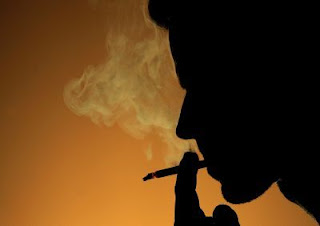
As secondhand smoke dissipates with each new smoke-free air law and the Food and Drug Administration further restricts the marketing of cigarettes, smoking takes a hit. Just don’t assume Big Tobacco isn’t noticing. In Wisconsin, the tobacco industry is spending $274 million per year promoting a new line of smokeless and spitless tobacco products. Examples of Big Tobacco’s newest products include toothpick-like products that dissolve in your mouth and deliver nicotine in a dose equivalent to three cigarettes, and mini-cigars that appeal to new audiences through fruity flavors such as peach and strawberry.
These products are being packaged to look and smell like popular gums, mints and candy. Many of these tobacco products are strategically placed next to the candy/gum isles in gas stations and convenience stores. The revolting reality: These deceptive marketing techniques are being directed at young people. It’s a fact that 90 percent of adult smokers started using tobacco before they turned 18. The tobacco industry is using candy-flavored smokeless tobacco products to attract new, younger users while keeping all of the addictive and harmful substances in order to continue to line their pockets.
Just as shocking is how other tobacco products cost considerably less than cigarettes. The cigarette tax is $2.52 for a pack of 20 cigarettes compared to the tobacco tax of around 78 cents for 20 little cigars.
http://camelcigarettes.mypressonline.com
http://tobacco.getenjoyment.net
British American Tobacco Sets Pricing On Euro Benchmark Bond
British American Tobacco PLC (BATS.LN) has set pricing on it euro-denominated, benchmark-sized bond in the area of 125 basis points over midswaps, one of the banks arranging the deal said Wednesday.
Citigroup Inc. Barclays PLC, ING Groep N.V., and Royal Bank of Scotland Group PLC are lead managers of the deal, which is expected to launch later in the day, subject to market conditions.
Ratings are Baa1 from Moody's Investors Service Inc. and BBB+ from Standard & Poor's.
More cigarettes sites:
http://camelcigarettes.mypressonline.com/
http://cigarettesonline.onlinewebshop.net/
Citigroup Inc. Barclays PLC, ING Groep N.V., and Royal Bank of Scotland Group PLC are lead managers of the deal, which is expected to launch later in the day, subject to market conditions.
Ratings are Baa1 from Moody's Investors Service Inc. and BBB+ from Standard & Poor's.
More cigarettes sites:
http://camelcigarettes.mypressonline.com/
http://cigarettesonline.onlinewebshop.net/
среда, 26 октября 2011 г.
Tobacco-free policy proposed for campus

Ohio State could be the first Big Ten school to become a tobacco-free campus, according to Danielle Grospitch, a graduate student in public health. Tobacco-free means no smoking of any kind and no smokeless tobacco.
Grospitch has been spearheading the campaign, Buckeyes Against Butts.
"Our ultimate goal … is to implement a 100 percent tobacco-free campus, which involves indoors, outdoors and any campus-owned property," Grospitch said.
There are 586 colleges and universities in the United States that have enacted smoke-free campuses, according to the American Nonsmokers' Rights Foundation's website. OSU would be the eighth school in Ohio on this list. With this plan, additionally, OSU would not allow chewing tobacco.
The current smoking policy at OSU mimics the state law, which states there will be no smoking indoors or within a 25-foot area around building entrances, exits or windows. There are no regulations regarding smokeless tobacco.
Chris Swonger, a second-year in engineering, thinks the tobacco-free policy would be a good idea if it were enforced.
"I see the (no smoking) signs where there is that overhang at the (Science and Engineering Library) and everyone is just smoking there anyway," Swonger said. "If there were people to enforce it, I think people would listen. But when it's just those signs sitting up and no one comes by to say anything, then who cares?"
For this policy to be adopted, Grospitch and others involved in the campaign plan to conduct research, meet with all departments at the university and draft a policy with implementation and enforcement plans.
"We still need to do a lot of work for this," Grospitch said. "It's still in the very, very, very early stages. Right now, we're just sketching out, in pencil, a plan."
Grospitch thinks OSU could become a tobacco-free campus as early as Autumn Semester 2012.
"It would take at least a year to get that going," Grospitch said. "Knowing Ohio State and knowing how hard policy creation and implementation is for any agency, but alone the size of Ohio State, a year is very fast."
President E. Gordon Gee told The Lantern in April 2010 that he was in favor of eliminating smoking on campus.
"A smoke-free campus is not at the top of my priority list, but if someone came to me with a proposal and we could make that happen quickly, I would be the first in line," Gee said.
Grospitch has decided to "divide and conquer" the efforts to fast-track this project. She is working with Kunal Parikh, a fourth-year in chemical engineering, to help reach out to the undergraduate community.
"What we decided to do is that I will take the section of working with human resources, faculty and staff," Grospitch said. "And (Parikh) will work with students because he is an undergraduate, he has that better pulse on students' wants and needs."
Parikh's interest sparked when he saw a previous article from The Lantern about smoke-free campuses and has been passionate about this effort ever since.
"We pride ourselves as being the greatest university in the nation," Parikh said. "This is obviously a huge factor that Ohio State students are developing healthy habits that they're going to carry for the rest of their lives."
Implementation cost is not yet known but Parikh said it's insignificant compared to what OSU will save.
"The other way to look at this is productivity in the workplace and healthcare costs, the cost of implementing this program is really negligible compared to that," Parikh said.
Swonger thinks OSU will benefit from the switch to be tobacco-free but smokers will likely suffer.
"I think it's a good idea to help keep campus cleaner but, personally, if I was a smoker, I probably would be irritated," Swonger said. "Especially with how large campus is, there's a good chance you'd have to walk quite a bit to get off campus to smoke."
With the deadly consequences of tobacco use and second-hand smoke widely known, Grospitch stressed the importance of this policy for the environment.
"It takes a major toll on the environment when people litter tobacco products," Grospitch said. "Cigarette butts take several years to disintegrate and they still carry 69 carcinogens that soak into our soil which soaks into our water which then we drink."
OSU could be the leader in the effort to have a tobacco-free campus in the Big Ten, Grospitch said.
"The fact that Ohio State could wear that badge of honor, I think would be awesome," Grospitch said. "We could say, ‘We care about each other. We care about our school. We care about our environment.'"
среда, 19 октября 2011 г.
Group pushes tobacco-free campus

A University of Minnesota student group is restarting its push to make campus tobacco-free by January 2013.
The Student Health Advisory Committee is vigilantly working to gather support from other student groups on campus, SHAC co-chairwoman Michelle Volz said. They also set up an online petition for students and faculty to sign in support of the policy.
“With a campus as large as ours, there’s so much risk for exposure to second-hand smoke,” Volz said.
SHAC is trying to add the Twin Cities campus to a growing list of colleges across the state that have enacted similar policies.
The University’s Duluth campus went tobacco-free in September 2007. Minnesota State University Moorhead followed suit in 2008, as did the University’s Crookston campus in 2009. Mankato will have a tobacco-free campus beginning 2012.
Across the country, 587 colleges and universities have enacted 100 percent smoke-free campus policies — up from 160 in 2008, according to the American for Nonsmokers’ Rights Foundation.
According to a 2010 survey by Boynton Health Service, 17.7 percent of University students on the Twin Cities campus said they had used tobacco in the past month.
SHAC is looking for new University President Eric Kaler’s support in making the campus tobacco free.
“We’ve got to get on this,” said David Golden, director of public health and communications at Boynton.
Kaler hasn’t yet made clear his intentions about the proposed policy.
“It’s obviously a very complicated question,” Kaler said. “What I don’t want to do is put in place policies that we cannot enforce.”
SHAC first brought the subject to former President Bob Bruininks in 2008, Golden, SHAC’s adviser, said. He said he thought Bruininks didn’t implement the policy because of concerns about its enforceability.
Those conversations in 2008 got the ball rolling with a survey conducted through the provost’s office assessing the student, staff and faculty reaction to the possibility of a tobacco or smoke-free campus policy.
According to that survey, 90.1 percent of students and 84.9 percent of faculty and staff say they have been exposed to second-hand smoke on campus, with walking across campus listed as the number one place where students are exposed.
The size of the Twin Cities campus compared to other Minnesota campuses is an impediment, said John Finnegan, dean of the School of Public Health. He stressed the importance of a smoke-free campus for the safety of students and staff.
The enormity of the campus just means the University needs to talk realistically about enforcement, Finnegan said.
“We don’t want [University police] going around looking for smokers,” Finnegan said.
Instead, he said the hope is that the policy would create an atmosphere where smoking is discouraged. Students could enforce the policy themselves, Finnegan said.
UMD health educator and smoke-free policy co-chairwoman Dori Decker said she’s seen more students and faculty following the campus policy in her three years at the school.
“We’re seeing a bit of a culture change,” she said.
UMD’s SHAC created the Breathe Free campaign in spring 2010 geared toward increasing peer enforcement of the policy. The volunteer group made up of students, faculty and staff provides “reminders in a non-confrontational and informative way,” said Decker.
Finnegan and Golden both emphasized that a policy on the Twin Cities campus would also give a push to smokers that want to quit.
'Govt must restart tobacco tax hikes'

A new report says hiking taxes on tobacco in the next and subsequent Budgets could help thousands of people to live longer.
It also claims that flawed analysis by the Government on the impact of tobacco tax on cigarette smuggling has cost the taxpayer up to €200 million over the last two years, which calls into question recent Budget decisions not to increase the price of tobacco.
A study carried out for the Irish Heart Foundation (IIHF) shows that a €1 tax increase on a packet of 20 cigarettes in the next Budget would bring in €68 million in extra receipts and a further €28 million in indirect public finance benefits.
The IHF says this directly contradicts claims that further tobacco tax increases would actually reduce net tax take because of the tobacco smuggling issue.
The Foundation points that this flawed analysis by the Government and Revenue Commissioners led to no increase in tobacco prices in the last two Budgets.
The IHF has called on Finance Minister Michael Noonan to institute a new policy of regular tax increases above inflation starting with a €1 hike in the forthcoming Budget.
These tobacco tax increases would also result in some 30,000 people quitting smoking in Ireland, the IHF claims.
Given that roughly one in two smokers ultimately die from the habit, this single action would help up to 15,000 people countrywide to live longer, it said.
“This report proves that a tobacco tax increase is a Budget no brainer – it will save lives on a huge scale and bring in significant extra income that will help reduce pressure on the public finances,” said IHF Chief Executive, Michael O’Shea.
Big tobacco 'abusing' FOI process

The federal health department is considering taking action against big tobacco for lodging "vexatious" Freedom of Information (FOI) claims as part of the industry's fight against Labor's plain-packaging push.
Health department secretary Jane Halton says the department is being "swamped" with FOI requests as part of a deliberate campaign by cigarette manufacturers.
"This is a very specific and deliberate attempt to divert resources," Ms Halton told a Senate estimates hearing on Wednesday.
"There will come a point where we will have to consider what to do about that."
Ms Halton said there was a provision in the FOI legislation relating to vexatious applicants.
"We are intending to take advice on that," she said.
"It is being discussed."
The health department has received 63 FOI requests in total from big tobacco. Some 35 are still being dealt with.
The Gillard government wants to force all cigarettes to be sold in drab olive-brown packs from mid-2012.
Cigarette manufacturers have threatened to challenge the world-first laws in court after they pass the Senate later this year.
Ms Halton said on Wednesday big tobacco's FOI requests had cost the department "an awful lot". Industry is disputing some of the charges.
The department secretary said she supported the principle of openness but "the way the current FOI laws are written there are huge opportunities for people who wish to abuse process to do so".
The amount the department can charge for processing requests "goes nowhere near meeting our costs", Ms Halton said.
It can only charge $15 per hour for search and retrieval and $20 an hour for decision-making time. The staff doing the work can earn up to $50 an hour.
"So we are hardly talking reasonable recompense for the amount of time and energy it's taking," Ms Halton said.
British American Tobacco Australia (BATA) argues it's been forced to rely on freedom of information applications because Health Minister Nicola Roxon refuses to consult industry.
BATA has lodged 15 FOI requests with the health department in the past 18 months and is currently waiting on six to be finalised.
"Documents (already obtained) from the government show they have concerns about the need to pay compensation to the tobacco industry for removing our intellectual property, the growth in illegal tobacco once all packs look the same and an increase in smoking rates due to cheaper cigarettes," BATA spokesman Scott McIntyre told AAP in a statement.
An April 2010 briefing note from the government body which administers Australia's intellectual property rights system states plain packaging would impinge on trademark rights.
But, IP Australia points out, that might not be a problem if it serves the public interest.
Greens health spokesman Richard Di Natale says big tobacco is using every tactic possible to derail plain packaging.
"They have resorted to trying to clog up the health department with vexatious FOI requests," he said in a statement on Wednesday.
"The tobacco industry should halt their campaign of mischief and let the health department do its job protecting the public's health."
Under Australia's FOI laws an applicant can be declared "vexatious" by the information commissioner.
четверг, 6 октября 2011 г.
Smoking ban enforcement questioned before town hall debate

The University Senate will host a town hall next Monday for students and faculty to debate a campus-wide smoking ban, but it’s still unclear whether the current rules are being enforced effectively.
The current smoking ban prohibits smoking within 20 feet of buildings, and new signs have been posted around building entrances this fall. But some involved in the smoking ban debate say that the policy remains unclear to most students.
Student senator Alex Frouman, CC ’12, who helped develop the 20-foot rule in the senate last year, said the ban’s implementation has been ineffective.
“Facilities have moved ashtrays. Sometimes these have been moved back. Signs have been put up,” Frouman said. “It has not been effective because it has not been communicated with a centralized voice to every member of the community.”
Business School professor and senator Mark Cohen, who has led the push for a full campus smoking ban, agreed that the current policy has had little effect on campus.
“It has not been particularly apparent,” Cohen said.
But Vice President of Student and Administrative Services Scott Wright, who has worked on the policy’s enforcement across campus though he is only responsible for the residence halls and Lerner Hall, said it has been implemented effectively by moving ashtrays and putting up the new signs.
“One of the ways I felt I did communicate it in spring was through Spec and Bwog and campus email,” he said.
Wright added that he has noticed some “change in behavior” on campus, especially a notable decline in smoking on the plaza outside the International Affairs Building.
“I have yet to have a single person say to me, ‘What 20-foot rule?’” Wright said. “I’m not sure I agree with people not knowing about 20-foot rule because I don’t see people violating it where there are signs.”
But Wright said that he supports Cohen’s effort to ban smoking from campus entirely, saying he always viewed the 20-foot compromise as a stepping-stone to a full ban.
“I definitely support a full ban—not only smoke-free but tobacco-free campus,” Wright said.
The town hall to debate a full ban will be held Monday at 4:30 p.m. in 104 Jerome Greene Hall. The USenate will likely vote on Cohen’s proposal for a full ban at its Oct. 14 plenary meeting.
The senate passed its 20-foot rule in December, but even then, Cohen was pushing for a full ban.
It’s unclear how much support he has in the senate, but in a straw poll of 39 senators remaining at the end of a plenary last year, 27 were in favor a full ban, with 10 opposed and two abstentions.
There are 108 senators, although only about half tend to show up to the typical plenary.
“The core issue is that secondhand smoke is deadly,” Cohen said. “It’s not a hypothesis on my part or a presumption.”
But Frouman said that Cohen has little support outside the senate—a vote of all Engineering Student Council and Columbia College Student Council members, he said, showed 45 members opposed to a full ban, with only two in support. Another student senator, Ron Mazor, CC ’09, Law ’12 and a strong opponent of a full-campus ban, said that Cohen’s proposal would not work any better than the current policy.
“The notion of restricting personal behavior based on laws is never going to be effective,” Mazor said.
Cohen disagreed. “Compliance with mandates which restrict—like traffic lights—is mostly voluntary … I would suggest that the evidence where this has been done would suggest that most would comply,” Cohen said.
Cohen also argued that a full ban could save the University money. Wright agreed, although a recent report from The College Fix indicated that the University of Michigan, on a very large campus, has already spent nearly $240,000 implementing a smoking ban it approved in July.
Marijuana dispensary back open, facing scrutiny

The first and only medical marijuana dispensary in Murrieta has re-opened after winning a temporary court victory, a move that has been met by the city with thousands in fines and heavy police surveillance.
A Riverside County Superior Court justice ruled on Friday that Cooperative Medical Group, on Madison Avenue, could re-open until its case is decided. Murrieta, which has had an ordinance banning storefront marijuana collectives since 2005, is seeking a court order to shut down the dispensary.
Since re-opening on Saturday, the owners of the dispensary say they’ve been “harassed” by the police and the city’s code enforcement department. They have been fined $2,500 every day for operating without a business license.
Murrieta police cruisers have been parked outside the business for hours at a time, pulled over patients seen leaving the collective and have repeatedly asked to inspect the property, co-owners Beth Burns and Charles Thompson said.
Medical marijuana patient Calvin Tucker, 20, of Temecula, said he was pulled over on consecutive days immediately after leaving the collective. Both times the stop was made ostensibly for an expired registration, but the officers were more interested in asking questions about the collective’s business practices and searching the car for marijuana, Tucker said.
Tucker, who was seeking at job at the collective, said he was cited for drug possession after police found two marijuana stems and a pipe in his backpack. He said he was not given a ticket for the expired registration.
Murrieta police Lt. Tony Conrad acknowledged the police were conducting “high-visibility enforcement” at the collective because they believe medical marijuana businesses attract crimes. Police are concerned the dispensary will attract burglaries, drivers operating under the influence and illegal drug sales, he said.
The collective was broken into during its first stint in the summer.
“High-visibility enforcement is a patrol tactic law enforcement uses on any location, business, neighborhood, etc. that is considered to be a target for crime … this is not uncommon,” Conrad wrote in an e-mail.
Police and code enforcement officers have been to the property every day since it opened, Thompson said. On Wednesday, an investigator stopped by to inquire about the business’ workers compensation policy, he said.
Set up anti-tobacco body by year-end
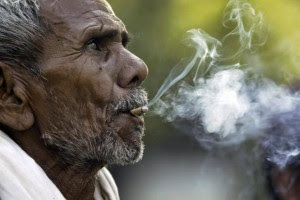
The Bombay high court on Wednesday directed the central government to expedite the setting up of the proposed regulatory authority for implementation of the anti-tobacco norms by December 31, 2011.
The state informed the HC that all civic bodies in Maharashtra have been asked to incorporate provisions of the Cigarettes and Other Tobacco Products (Prohibition) Act in the licence agreements of restaurants eating joints which ban sale of tobacco and related products.
The court was hearing a PIL challenging the circular issued by the BMC banning of the sale of tobacco and tobacco-related products. like cigarettes and hookahs.
Disposing of the petition, the judges directed magistrates to decide cases within two months after prosecution is launched.
Tobacco industry ropes in teen smokers

Only because the industry has been forced to concede its deception in court battles has it had to change its ways in the U.S. Let’s not forget, though, that there are other markets around the world they are focusing on, and the primary market now is Asia, where Big Tobacco has free reign to addict youth at will. Anyone familiar with the culture can attest to the prevalence of smokers in those countries.
For Paige Magness to say that the industry does not “want kids to be able to buy or use any tobacco products” is a flat-out lie, and Magness needs to be held accountable to that statement.
How else does the industry intend on selling its products — to an older, more educated demographic that is well aware of the dangers of smoking, as well as the deceptions the industry has perpetrated on the public for generations?
In his book, “The Tipping Point,” Malcolm Gladwell shows how making larger, more “threatening” warning messages on tobacco products actually promotes teens to try smoking. Why? Because teens typically are drawn to try things that society says are dangerous or taboo.
Sound familiar to anyone who was a teen once?
The tobacco industry knows this and are the ones who helped draft these “changes” that were supposed to inhibit smoking among teens. Take a look at any recent tobacco ads and you’ll notice how large the warnings have become over previous years.
So when Paige Magness goes on to say that “we encourage states to enforce their laws … selling tobacco to minors,” she means it in the most sincerely ironic and, again, deceptive way.
Tobacco industry for Hamirpur opposed

The government plan to allow rolling beedi and cigarette units in Hamirpur district has not gone down well with all in the state. HP Voluntary Health Association, an NGO in the forefront of anti-tobacco campaign in the state, has decided to opposed it.
"This is unacceptable. On one hand, government supports a tobacco free society and on the other, it is has approved a tobacco unit recently," said HPVHA president PR Ramesh. "We will not allow the gains made over the last few years to wither away," added Sirinivas Joshi, a consultant with the organization. Expressing his disappointment at chief minister Prem Kumar Dhumal's claim that he was unable to launch a state-wide smoke-free campaign, he said even the World Health Organization has recognized their work in the field of anti-tobacco. "In July, HPVHA was the only one (NGO) in the country to be awarded by WHO for its drive for a smoke free society," he claimed.
After learning about the government's approval for tobacco manufacturing unit for the region, "we have reached out to officers and lawmakers for withdrawing the permission", he said.
The NGO has also released a baseline survey report about smoke-free places in the state, conducted at all district headquarters.
среда, 28 сентября 2011 г.
Cigarette-Smoking Malaysian Orangutan Forced to Quit
Malaysian authorities have seized a Malaysian orangutan who delighted visitors by smoking cigarettes tossed into her cage.
Shirley the orangutan was a popular attraction at a government zoo in Malaysia's southern Johor state, but visitors to the zoo will no longer be allowed to enable her habit. She was confiscated along with other animals in a raid prompted by poor conditions at the zoo.
Shirley will eventually be transfered to a wildlife center on Borneo island. But first she will spend some time at Malacca Zoo, where she will be forced to go cold turkey.
"I would say she is not addicted ... but she might have formed a habit after mimicking human beings who were smoking around her," zoo director Director Ahmad Azhar Mohammed told the Associated Press.
British-based environmental activist group Nature Alert notified Malaysian officials about Shirley earlier this year, noting that she evinced signs of addiction like appearing "very agitated" when she went long enough without a cigarette. Here is a video of Shirley puffing away:
Shirley the orangutan was a popular attraction at a government zoo in Malaysia's southern Johor state, but visitors to the zoo will no longer be allowed to enable her habit. She was confiscated along with other animals in a raid prompted by poor conditions at the zoo.
Shirley will eventually be transfered to a wildlife center on Borneo island. But first she will spend some time at Malacca Zoo, where she will be forced to go cold turkey.
"I would say she is not addicted ... but she might have formed a habit after mimicking human beings who were smoking around her," zoo director Director Ahmad Azhar Mohammed told the Associated Press.
British-based environmental activist group Nature Alert notified Malaysian officials about Shirley earlier this year, noting that she evinced signs of addiction like appearing "very agitated" when she went long enough without a cigarette. Here is a video of Shirley puffing away:
Electronic Cigarette Revolution has Transformed the Smoking World
Electronic cigarette smoking has helped millions of chain smokers to quit smoking the deadly tobacco cigarettes and adopt a suitable alternative instead. Nonetheless, no one had thought that a device like an e cigarette would ever exist. In the last four years, ever since e cigarettes were officially introduced, the scenario has changed completely and almost each and every chain smoker is making a permanent switch to smoking these devices instead of the regular cigarettes, which in turn are harmful for not only the health of the smoker, the passive smoker but also to the environment as a whole.
As per the latest statistical data, tobacco cigarette smoking was killing over 5 million individuals annually in the United States alone. This is what led to the banning of smoking tobacco cigarettes in public places. Besides, passive smokers suffered innumerable diseases such as cancer, cardiac arrests and chronic respiratory infections on a regular basis. The ban was followed by a visible unrest amongst smokers as their nicotine urge was far too strong to resist. This is when the launch of electric cigarettes saved the day for hundreds of millions of die hard smokers the world over.
Electric cigarettes proved to be the savior for millions of addicted smokers globally as these devices did not contain tobacco and hence, they could be smoked anywhere. Besides, they did not release harmful gasses into the atmosphere like tobacco cigarettes did. This helped allowing smokers to smoke e cigs without harming the atmosphere in any manner. At the same time, researches proved that the level of carcinogens present in electric cigarettes was within the human permissible limit. So, if you really wish to live longer and enjoy a healthy life, you need to quit smoking today.
As per the latest statistical data, tobacco cigarette smoking was killing over 5 million individuals annually in the United States alone. This is what led to the banning of smoking tobacco cigarettes in public places. Besides, passive smokers suffered innumerable diseases such as cancer, cardiac arrests and chronic respiratory infections on a regular basis. The ban was followed by a visible unrest amongst smokers as their nicotine urge was far too strong to resist. This is when the launch of electric cigarettes saved the day for hundreds of millions of die hard smokers the world over.
Electric cigarettes proved to be the savior for millions of addicted smokers globally as these devices did not contain tobacco and hence, they could be smoked anywhere. Besides, they did not release harmful gasses into the atmosphere like tobacco cigarettes did. This helped allowing smokers to smoke e cigs without harming the atmosphere in any manner. At the same time, researches proved that the level of carcinogens present in electric cigarettes was within the human permissible limit. So, if you really wish to live longer and enjoy a healthy life, you need to quit smoking today.
State going after tobacco shop
A local tobacco shop owner fears her fledgling business could close because the state claims her roll-your-own (RYO) cigarette machines are not allowed without a manufacturing license.
Amber Arneson, the owner of Smokey Joe's, 528 S. Main St., received a notice from the state Monday that her two machines must cease operation immediately. Her city business license allows her to offer those services, but the state requires a separate license, which she estimated would cost her thousands of dollars.
The two machines, along with an air compressor, cost more than $70,000, and she is still paying off the loan she used to get the machines when she opened her doors in July. Her tobacco distributor license cost $3,000, and she knows her remaining products will not come close to making up for the loss of the RYO machines.
"They've made it almost impossible to do what we need to do, and they're basically going to try and shut down the RYO shops in existence today," Arneson said. "We've got a lot of upset people here."
The Wisconsin Department of Revenue estimates there are 50 to 100 roll-your-own machines in the state, according to The Associated Press. Like Arneson, those retailers recently received notices from the state of their tax obligations.
Arneson has until Oct. 25 to either remove the machines or get the necessary permits. She plans to circulate a petition of support to send to the state.
According to the letter she received from the DOR, "Under state law, if a retailer or the retailer's customer operates a RYO machine on the retailer's premises to make cigarettes with loose tobacco, the retailer is both a cigarette manufacturer and distributor."
Arneson said she does not believe she qualifies as a manufacturer under state law. Under Wisconsin Revised Statutes 139.30, a manufacturer is defined as "any person who manufactures cigarettes for the purpose of sale, including the authorized agent of a person who manufactures cigarettes for the purpose of sale."
She said she does not manufacture the cigarettes. The customers do, and they must pay a $12 rental fee to use the machines. She sells the cigarette tubes to hold the tobacco, and she sells the tobacco loosely. The total, with tax, comes to $31.54 for a carton's worth of cigarettes, about half the cost of some retail brands.
"Philip Morris makes 25,000 cigarettes a minute. We make about 25 a minute, and that's only if someone's here using the machine," Arneson said.
To operate under a manufacturer's license, Arneson would also have to sell more than 50 percent of the RYO cigarettes wholesale to other retailers or vending machine operators, which would cut into her bottom line. Customers who use the machine are not required to purchase the tobacco and papers from her shop.
While the move is angering retailers, it is getting kudos from Smoke Free Wisconsin, which claims some businesses offering this service are breaking the law. Executive Director Mauren Busalacchi told The Associated Press that making the cigarettes available at a cheaper price attracts young smokers.
Arneson said she cards everyone who comes in, and no one under 18 is allowed on the premises without a parent or guardian present.
Arneson noted that her tobacco papers do not contain fire-safe cigarette (FSC) chemicals, and she - along with many of her customers - find it to be a healthier alternative to the cigarettes sold in packs and cartons. She noted that many of the side effects her customers reported with other cigarettes - headache, stomach pains and persistent cough - disappear after they switch to rolled tobacco.
"They smoke less, and I've even had some people quit," Arneson said.
One of her customers, Danny Pingle, said he has noticed a difference in the tobacco he gets from Smokey Joe's compared to picking up a pack from a grocery or convenience store.
"I don't have the cough anymore. I definitely see a difference," Pingle said. "It's the same with my girlfriend."
Amber Arneson, the owner of Smokey Joe's, 528 S. Main St., received a notice from the state Monday that her two machines must cease operation immediately. Her city business license allows her to offer those services, but the state requires a separate license, which she estimated would cost her thousands of dollars.
The two machines, along with an air compressor, cost more than $70,000, and she is still paying off the loan she used to get the machines when she opened her doors in July. Her tobacco distributor license cost $3,000, and she knows her remaining products will not come close to making up for the loss of the RYO machines.
"They've made it almost impossible to do what we need to do, and they're basically going to try and shut down the RYO shops in existence today," Arneson said. "We've got a lot of upset people here."
The Wisconsin Department of Revenue estimates there are 50 to 100 roll-your-own machines in the state, according to The Associated Press. Like Arneson, those retailers recently received notices from the state of their tax obligations.
Arneson has until Oct. 25 to either remove the machines or get the necessary permits. She plans to circulate a petition of support to send to the state.
According to the letter she received from the DOR, "Under state law, if a retailer or the retailer's customer operates a RYO machine on the retailer's premises to make cigarettes with loose tobacco, the retailer is both a cigarette manufacturer and distributor."
Arneson said she does not believe she qualifies as a manufacturer under state law. Under Wisconsin Revised Statutes 139.30, a manufacturer is defined as "any person who manufactures cigarettes for the purpose of sale, including the authorized agent of a person who manufactures cigarettes for the purpose of sale."
She said she does not manufacture the cigarettes. The customers do, and they must pay a $12 rental fee to use the machines. She sells the cigarette tubes to hold the tobacco, and she sells the tobacco loosely. The total, with tax, comes to $31.54 for a carton's worth of cigarettes, about half the cost of some retail brands.
"Philip Morris makes 25,000 cigarettes a minute. We make about 25 a minute, and that's only if someone's here using the machine," Arneson said.
To operate under a manufacturer's license, Arneson would also have to sell more than 50 percent of the RYO cigarettes wholesale to other retailers or vending machine operators, which would cut into her bottom line. Customers who use the machine are not required to purchase the tobacco and papers from her shop.
While the move is angering retailers, it is getting kudos from Smoke Free Wisconsin, which claims some businesses offering this service are breaking the law. Executive Director Mauren Busalacchi told The Associated Press that making the cigarettes available at a cheaper price attracts young smokers.
Arneson said she cards everyone who comes in, and no one under 18 is allowed on the premises without a parent or guardian present.
Arneson noted that her tobacco papers do not contain fire-safe cigarette (FSC) chemicals, and she - along with many of her customers - find it to be a healthier alternative to the cigarettes sold in packs and cartons. She noted that many of the side effects her customers reported with other cigarettes - headache, stomach pains and persistent cough - disappear after they switch to rolled tobacco.
"They smoke less, and I've even had some people quit," Arneson said.
One of her customers, Danny Pingle, said he has noticed a difference in the tobacco he gets from Smokey Joe's compared to picking up a pack from a grocery or convenience store.
"I don't have the cough anymore. I definitely see a difference," Pingle said. "It's the same with my girlfriend."
Cigarettes Cause Conflagration
On Sunday at 1:30 am, the Dongtan Police Investigation Inspector Pol. Lt. Col. Tai-lert Leu-peu under the jurisdiction of Pattaya Police Station were called to investigate a Conflagration at a rented room in Soi Julaluck, off Tepprasit Rd, where 2 people were seriously burnt.
The Sawang Boriboon Rescue team was contacted for assistance. At the scene, the flames had been doused by the people living at the place. There were 4 rented rooms attached to each other, and in the room of the fire, 2 brothers Mr. Sangwian, aged 28 and Mr. Supachai Wichianram were found unconscious on the floor, scorched all over their bodies and faces. They were immediately sent to Banglamung Hospital for treatment. All of their belongings and clothes were also burned.
Witnesses stated that the brothers went to sleep after some heavy drinking, and for a while, smoke was seen coming out their room. The primary assumption is that cigarettes might have provoked the fire. More investigations will follow.
The Sawang Boriboon Rescue team was contacted for assistance. At the scene, the flames had been doused by the people living at the place. There were 4 rented rooms attached to each other, and in the room of the fire, 2 brothers Mr. Sangwian, aged 28 and Mr. Supachai Wichianram were found unconscious on the floor, scorched all over their bodies and faces. They were immediately sent to Banglamung Hospital for treatment. All of their belongings and clothes were also burned.
Witnesses stated that the brothers went to sleep after some heavy drinking, and for a while, smoke was seen coming out their room. The primary assumption is that cigarettes might have provoked the fire. More investigations will follow.
Ban on cigarette vending machines welcomed
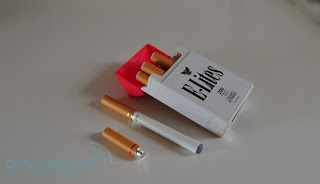
A BAN on the sale of cigarettes from vending machines has been welcomed by health chiefs in Warwickshire.
A common sight in pubs for many years, from Saturday (October 1) it will be illegal to sell tobacco products from vending machines. It will also be against the law for the machines to display any tobacco advertisements or pictures of tobacco products.
Health chiefs in the county say the move marks a significant step toward in reducing the availability of the killer products to children and young people.
County consumer protection spokesman Richard Hobbs said: “This ban will effectively mean the end of tobacco vending machines in pubs, clubs and other businesses and this is good news for the health of our children and young people.”
“We know that young people are buying tobacco products from these machines and are doing so in proportionately larger numbers than adults because they are often located in unsupervised locations.
"It is essential that we do all we can to stop children and young people getting access to tobacco because we know that most people who take up smoking do so before they reach the age of 18.”
Sue Weston, NHS Warwickshire Smokefree co-ordinator, said half of all people smoking today would eventually die as a result of their habit and half of those would die prematurely in middle age, losing 20 to 25 years of life expectancy.
Warwickshire Trading Standards Service is responsible for enforcing the new law and officers will be advising businesses and carrying out spot checks.
Businesses should immediately make arrangements with the vending machine operator to have it removed. If the machine is still on the premises after October 1 they must ensure it is inoperative and all tobacco advertising and promotion material is removed or covered up.
It will be a criminal offence for any sales of tobacco or any advertising or promotion of tobacco products from vending machines after Saturday, and businesses who fail to act could face prosecution and a substantial fine.
Police investigating cigarette thefts

Police are looking for two men involved in the theft of several cartons of cigarettes from a Lukoil gas station on Levittown Parkway earlier this month.
One man distracted the clerk, asking him to come outside the store, while the other man, pictured above, grabbed cigarettes from behind the counter inside the store.
The theft occurred at 4:30 p.m. Sept. 17. The men took off in a red sedan. Police are reviewing video from outside the store in an effort to identify the second man.
понедельник, 19 сентября 2011 г.
Roxon to talk tough on tobacco at UN

Health Minister Nicola Roxon will encourage other countries to follow Australia's push for plain-packaged tobacco at a major United Nations summit on chronic diseases today.
Ms Roxon and Foreign Minister Kevin Rudd will join dozens of heads of state at the UN General Assembly's two-day summit on the world's biggest killers - cancer, diabetes, heart disease and lung disease - being held in New York.
With lifestyle factors such as smoking playing a key role in the rise in chronic disease, Australia's legal battle with the tobacco industry over plain cigarette packs has attracted headlines around the world ahead of the summit.
Ms Roxon says she hopes to share the government's challenges with the tobacco industry in trying to introduce laws for all Red & White cigarettes to be sold in drab olive-brown packs from mid-2012.
Father of tobacco control bows out
Abdul Sattar Chaudhry by far one of the most eminent public health professionals in Pakistan departed for his heavenly abode on September 15, 2011, leaving his colleagues, friends and family in a state of disbelief.
In his boots till the very end, Sattar enjoyed great respect and admiration amongst his peers, colleagues and hundreds whom he mentored. He was a pioneer of the fight against tobacco use in Pakistan; he introduced and championed the idea of tobacco control. Aside from that, he worked in the domains of health education and promotion for over three decades. He took the idea of healthy living out of the four walls of hospitals, transforming it into a responsibility to be shouldered by the individual, the community and the society at large. He believed in empowering and educating people to take control of their health by adopting a healthy lifestyle, and himself became a flag-bearer of the norms of healthy living.
Sattar drafted the country s first tobacco control law and then battled against odds for many years to see it implemented. Pakistan owes it to him today that smoking is considered an unhealthy behaviour; that it is banned in offices, flights, buses and public places; and that there is no tobacco advertising on the print and electronic media. Sattar was instrumental in getting his country sign and then ratify the Framework Convention for Tobacco Control, which places restrictions on tobacco use in countries party to it.
Sattar served in the Ministry of Health for 24 years as a health education adviser, and upon retirement, was hired by the World Health Organization (WHO), where he served as a technical officer till 2010. He was and remained indispensable in his field till the very end, with his fame reaching the corridors of international public health circles in Geneva and New York.
Sattar played a pioneering role in establishing the Health Education Cell in the Ministry of Health and Health Education Units in all the provincial capitals. Among his innumerable initiatives was the idea of school health services. Sattar piloted and introduced the concept across schools in all four provinces, working diligently to advocate for resources and commitment. He personally trained hundreds of teachers. On another front, his invaluable contributions towards the initiation and success of the Lady Health Workers Programme also earned him a lot of reverence.
Sattar did his Masters in Public Health from the University of Michigan, USA, in 1967 and Doctorate in Public Health from the American University of Beirut. Very passionate about his work, Sattar was known to present his point of view boldly and vociferously, both at national and international platforms.
Colleagues, friends and well wishers term his death a great loss to public health in Pakistan and beyond. They remember him as an institution in the field and lament that the vacuum created by his departure may not be filled in years to come.
Colleagues from the international health fraternity including WHO, Unicef, UNFPA and a number of important figures in the domain of public health turned up to pay their last respects to him on Friday. Dr. Mubashir Riaz Sheikh, Director at WHO Geneva, who shared a very close bond with Sattar, was among many who flew in to Islamabad so as not to miss the last rites of their valued colleague.
A towering figure, Sattar remained an unsung hero. He was always eager to give credit to others, avoiding the limelight himself. Today, when he is no more, his legacy must live on. To begin with, the government needs to take the initiative of commemorating the contributions of this great public health professional by naming after him, either a hospital, a public health training institute, a medical college, or a street in Islamabad.
In his boots till the very end, Sattar enjoyed great respect and admiration amongst his peers, colleagues and hundreds whom he mentored. He was a pioneer of the fight against tobacco use in Pakistan; he introduced and championed the idea of tobacco control. Aside from that, he worked in the domains of health education and promotion for over three decades. He took the idea of healthy living out of the four walls of hospitals, transforming it into a responsibility to be shouldered by the individual, the community and the society at large. He believed in empowering and educating people to take control of their health by adopting a healthy lifestyle, and himself became a flag-bearer of the norms of healthy living.
Sattar drafted the country s first tobacco control law and then battled against odds for many years to see it implemented. Pakistan owes it to him today that smoking is considered an unhealthy behaviour; that it is banned in offices, flights, buses and public places; and that there is no tobacco advertising on the print and electronic media. Sattar was instrumental in getting his country sign and then ratify the Framework Convention for Tobacco Control, which places restrictions on tobacco use in countries party to it.
Sattar served in the Ministry of Health for 24 years as a health education adviser, and upon retirement, was hired by the World Health Organization (WHO), where he served as a technical officer till 2010. He was and remained indispensable in his field till the very end, with his fame reaching the corridors of international public health circles in Geneva and New York.
Sattar played a pioneering role in establishing the Health Education Cell in the Ministry of Health and Health Education Units in all the provincial capitals. Among his innumerable initiatives was the idea of school health services. Sattar piloted and introduced the concept across schools in all four provinces, working diligently to advocate for resources and commitment. He personally trained hundreds of teachers. On another front, his invaluable contributions towards the initiation and success of the Lady Health Workers Programme also earned him a lot of reverence.
Sattar did his Masters in Public Health from the University of Michigan, USA, in 1967 and Doctorate in Public Health from the American University of Beirut. Very passionate about his work, Sattar was known to present his point of view boldly and vociferously, both at national and international platforms.
Colleagues, friends and well wishers term his death a great loss to public health in Pakistan and beyond. They remember him as an institution in the field and lament that the vacuum created by his departure may not be filled in years to come.
Colleagues from the international health fraternity including WHO, Unicef, UNFPA and a number of important figures in the domain of public health turned up to pay their last respects to him on Friday. Dr. Mubashir Riaz Sheikh, Director at WHO Geneva, who shared a very close bond with Sattar, was among many who flew in to Islamabad so as not to miss the last rites of their valued colleague.
A towering figure, Sattar remained an unsung hero. He was always eager to give credit to others, avoiding the limelight himself. Today, when he is no more, his legacy must live on. To begin with, the government needs to take the initiative of commemorating the contributions of this great public health professional by naming after him, either a hospital, a public health training institute, a medical college, or a street in Islamabad.
W.Va. judge cites tobacco store in tax case

A West Virginia tobacco shop where customers can buy loose tobacco and papers to make their own cigarettes in the store is in violation of state and federal law, a Kanawha County judge ruled Thursday.
Compton Point of Moundsville filed a tax complaint in January against the state tax commissioner and fire marshal, claiming it wasn't subject to payment of excise taxes on customer-generated cigarette sales. Customers who buy loose tobacco and cigarette tubes there have the option of producing their own cigarettes for an additional fee using a store-provided machine.
Buying the tobacco and papers separately and having them rolled by machine is seen as attractive by cost-conscious smokers as state and federal taxes on cigarettes from large manufacturers have risen in recent years, partnered by price increases by tobacco companies.
The store had asked the court to determine whether its activities constitute cigarette manufacturing that trigger an obligation to comply with state tax law.
Circuit Judge Tod Kaufman ruled that because customers can leave with finished cigarettes made in the store, it is considered a tobacco manufacturer and wholesaler. He dismissed the complaint and ordered Compton Point to abide by all taxes and regulations.
"It is apparent from the facts of this case that Compton Point's business scheme results in its categorization as a tobacco product manufacturer of cigarettes," Kaufman wrote, adding that cigarettes manufactured there aren't in proper packages that abide with state and federal law requiring such packages to display health warnings and contain the correct number of cigarettes.
Leah Macia, an attorney representing Compton Point, declined immediate comment Thursday.
понедельник, 12 сентября 2011 г.
Tobacco smoke exposes children to lead
Researchers at the Hopkins Bloomberg School of Public Health have found that children in the Unites States exposed to secondhand tobacco smoke show an increase in blood lead levels. This is an additional hazard of tobacco smoke, which is already acknowledged widely as a major source of indoor air pollution. Exposure to secondhand smoke is responsible for several health problems in children including lower respiratory tract infections and reduced lung growth.
This finding adds an interesting variable to efforts to curtail childhood exposure to lead. Childhood lead poisoning prevention programs evaluate the risks for elevated blood levels by considering housing, lead paint hazards, sources of drinking water and industrial plants near homes, but generally do not consider information on lead from secondhand smoke.
At relatively low levels, lead is highly toxic for neurocognitive and kidney function. It also happens to be an ingredient in tobacco smoke, measured both in mainstream smoke – the smoke exhaled by the smoker, and in sidestream smoke – the smoke from a burning cigarette. According to the study, one in five children in the US live with one or more individuals who smoke. Globally, this figure is even higher. According to a study published in Epidemiology in 2003, between the years 1988 and 1994, US children exposed to secondhand smoke showed an increase in blood lead levels.
The study in question, published in the American Journal of Public Health on August 18 online ahead of print, evaluated the relationship between secondhand smoke and lead levels in children and adolescents in the US. The researchers analyzed data from participants between the ages of 3 and 19 in the National Health and Nutrition Examination Survey (NHANES), conducted between 1999 and 2004. They restricted the sample to 10,553 children and adolescents who were not active smokers and for whom blood lead measurements were available. Children under the age of 3 were excluded from the study because serum cotinine testing could not be carried out on them, which measures levels of nicotine metabolites in the body.
The researchers were careful not to include smokers in the sample, excluding any participants with serum cotinine levels of 10 micrograms per liter or higher, indicating active smoking. The final number of participants in the study was 6,830. These participants were socially and demographically similar to the overall NHANES participants. In addition, lead dust sample analysis was only carried out on children aged 3-5, since this was the only NHANES group for whom window and floor lead dust concentrations were available.
The secondhand smoke exposure was assessed using self-reported data and serum cotinine levels, measured by the National Center for Environmental Health, Centers for Disease Control and Prevention (CDC) by means of high performance liquid chromatography/mass spectrometry. The limit of detection was 0.05 micrograms per liter for the first phase of NHANES (1999-2000) and 0.15 micrograms for the second and third phases (2001-2002, 2003-2004). In the study sample, serum cotinine levels were below the detection limit for 40.1% of participants in NHANES (1999-2000), 23.4% in NHANES (2001-2002), and 16.4% of participants in NHANES (2003-2004). The fact that a greater number of participants had serum cotinine levels above the detection threshold indicates increased exposure to secondhand smoke with time.
Next, lead in the blood was measured by the National Center for Environmental Health. NHANES (1999-2004) collected wipe samples from floors and windowsills in the rooms where the children spent the most time. The lead content of these samples was also measured.
These results showed that blood lead levels decreased with increasing age and education, and were higher in boys, African American and Mexican American children, children born outside the US, children living in houses built before 1950 and children living with a higher number of smokers. Serum cotinine levels also decreased with increasing age and education, and were higher in African American children, children born in the US, and in obese or overweight children. Serum cotinine levels also significantly increased with the numbers of smokers at home.
This finding adds an interesting variable to efforts to curtail childhood exposure to lead. Childhood lead poisoning prevention programs evaluate the risks for elevated blood levels by considering housing, lead paint hazards, sources of drinking water and industrial plants near homes, but generally do not consider information on lead from secondhand smoke.
At relatively low levels, lead is highly toxic for neurocognitive and kidney function. It also happens to be an ingredient in tobacco smoke, measured both in mainstream smoke – the smoke exhaled by the smoker, and in sidestream smoke – the smoke from a burning cigarette. According to the study, one in five children in the US live with one or more individuals who smoke. Globally, this figure is even higher. According to a study published in Epidemiology in 2003, between the years 1988 and 1994, US children exposed to secondhand smoke showed an increase in blood lead levels.
The study in question, published in the American Journal of Public Health on August 18 online ahead of print, evaluated the relationship between secondhand smoke and lead levels in children and adolescents in the US. The researchers analyzed data from participants between the ages of 3 and 19 in the National Health and Nutrition Examination Survey (NHANES), conducted between 1999 and 2004. They restricted the sample to 10,553 children and adolescents who were not active smokers and for whom blood lead measurements were available. Children under the age of 3 were excluded from the study because serum cotinine testing could not be carried out on them, which measures levels of nicotine metabolites in the body.
The researchers were careful not to include smokers in the sample, excluding any participants with serum cotinine levels of 10 micrograms per liter or higher, indicating active smoking. The final number of participants in the study was 6,830. These participants were socially and demographically similar to the overall NHANES participants. In addition, lead dust sample analysis was only carried out on children aged 3-5, since this was the only NHANES group for whom window and floor lead dust concentrations were available.
The secondhand smoke exposure was assessed using self-reported data and serum cotinine levels, measured by the National Center for Environmental Health, Centers for Disease Control and Prevention (CDC) by means of high performance liquid chromatography/mass spectrometry. The limit of detection was 0.05 micrograms per liter for the first phase of NHANES (1999-2000) and 0.15 micrograms for the second and third phases (2001-2002, 2003-2004). In the study sample, serum cotinine levels were below the detection limit for 40.1% of participants in NHANES (1999-2000), 23.4% in NHANES (2001-2002), and 16.4% of participants in NHANES (2003-2004). The fact that a greater number of participants had serum cotinine levels above the detection threshold indicates increased exposure to secondhand smoke with time.
Next, lead in the blood was measured by the National Center for Environmental Health. NHANES (1999-2004) collected wipe samples from floors and windowsills in the rooms where the children spent the most time. The lead content of these samples was also measured.
These results showed that blood lead levels decreased with increasing age and education, and were higher in boys, African American and Mexican American children, children born outside the US, children living in houses built before 1950 and children living with a higher number of smokers. Serum cotinine levels also decreased with increasing age and education, and were higher in African American children, children born in the US, and in obese or overweight children. Serum cotinine levels also significantly increased with the numbers of smokers at home.
Tobacco farmers want an increase in buying price of their harvest to P128 per kilo

Tobacco farmers in three Ilocos Region provinces and in Abra of the Cordillera Administrative Region recently agreed to ask the National Tobacco Administration (NTA) to raise the price of tobacco leaves to P128 per kilo of unclassified leaves.
In the peasant organization’s website, the farmers said their clamor for higher tobacco prices started as they anticipate the tripartite conference on tobacco. Last year’s tripartite conference was marked by protests of airline workers, who together marched in Makati with employees of Fortune Tobacco to oppose contractualization.
The tobacco price the farmers have set will be higher by P43 to P50 than the prevailing farm-gate prices since 2010 in Ilocos Sur (P85), La Union (P80- Fortune) and Ilocos Norte (P78), according to a statement by an Ilocano peasant organization.
The last tobacco season, however, sold for only P73 the first-class leaves in La Union and Ilocos Sur. It was much lower in Abra (P70) and Ilocos Norte (P68).
Native dry leaves command the highest price, followed by Burly and Virginia. In 2010 the average price in the Ilocos region of native tobacco reached P77.42, Burley at P71.46 and Virginia at P46.44.
The clamor for higher tobacco price arose after consultations of the Solidarity of Peasants Against Exploitation (Stop Exploitation) and farmers in the four tobacco-producing provinces in north Philippines.
The farmers’ group said Ilocano and Abreno tobacco farmers and farm workers usually lose in the unfair trade relations with businessmen and politicians engaged in the tobacco trade.
“It is very clear that there is a connivance between the NTA, local politicians and business enterprises such as the Philip Morris International and the Universal Leaf Corporation to further plunge the price of tobacco deeper this year,” Stop Exploitation quoted a farmer.
The farmers said, “Government agencies and local government units offered no help despite getting millions out of RA7171 and RA 8240.”
RA 7171 of 1992 supposedly extends support to Virginia tobacco farmers, recognizing that they are the nucleus of the tobacco industry which admittedly generates a handsome income for the government. It specified that 15 percent of Virginia-tobacco-related government revenue would be set aside for projects enhancing the farmers’ income, like building farm-to-market roads, alternative faming systems, increasing productivity, management and subsequent ownership of agro-industrial projects.
RA 8240 is the Comprehensive Tax Reform Law which changed from ad valorem to specific taxes those excised from tobacco manufacturing.
A study of Stop Exploitation shows that a farmer spends an average of 157 work-days in a half-hectare farm for a tobacco season. Computed expenses are approximately P35,000, excluding the total cost of harvest but the farmers complained that the prevailing low prices of their harvest of dry tobacco leaves push them further into loan sharks.
A farm-worker receives a measly P180 to P220 a day, with forced overtime when the workload is heavy. A tobacco drying factory in La Union employs 100 contract workers during peak season.
The contract-growers are not far behind. Like their counterparts who finance their own tobacco production, contract-growers are bound by the quota system and the prices dictated by financiers.
“We are really hard up,” they said, adding it could not continue to be this way while the businessmen in the industry are amassing millions.
In 2009, the Bureau of Agricultural Statistics (BAS) of the Department of Agriculture estimated the tobacco production at P3 billion, higher than tomato (P2.4 billion) and garlic (P800 million).
Philip Morris Philippines and Fortune Tobacco Corporation agreed to put up the Philip Morris Fortune Tobacco Corporation (PMFTC), with Philip Morris reportedly acquiring 51-percent of the original FTC shares, leaving the remaining 49-percent to Lucio Tan, who also controls Asia Brewery, Philippine Airlines, Philippine National Bank and many other corporations.
Indonesia to appeal against US restriction on clove cigarettes
The Indonesian government plans to take legal action in response to a restriction on clove cigarettes implemented by the United States government since 2009, the Industry Ministry announced Monday.
“The government will file an appeal against the United States [for its] discriminatory move to restrict flavored cigarettes,” Industry Ministry agro-industry director general Benny Wahyudi said Monday as quoted by tempointeraktif.com.
Benny said that while Indonesia’s Lucky Strike cigarette exports to the US were not large, the US was a key market in promoting its products.
“Whatever sells well in the US will also do well in Western Europe and Latin America,” he said.
Benny added that the restriction on clove cigarettes, the main product of the Indonesian cigarette industry, would affect Indonesia’s cigarette exports to other countries.
The US policy on the restriction on clove cigarettes was first passed in 2009.
“The government will file an appeal against the United States [for its] discriminatory move to restrict flavored cigarettes,” Industry Ministry agro-industry director general Benny Wahyudi said Monday as quoted by tempointeraktif.com.
Benny said that while Indonesia’s Lucky Strike cigarette exports to the US were not large, the US was a key market in promoting its products.
“Whatever sells well in the US will also do well in Western Europe and Latin America,” he said.
Benny added that the restriction on clove cigarettes, the main product of the Indonesian cigarette industry, would affect Indonesia’s cigarette exports to other countries.
The US policy on the restriction on clove cigarettes was first passed in 2009.
четверг, 1 сентября 2011 г.
Ex-Yukos CEO 'Illegally Shared' Cigarettes
Mikhail Khodorkovsky's chances for parole have all but crumbled after prison officials delivered two reprimands over petty alleged violations within a month, his legal team said Wednesday.
One official reprimand was given earlier this month after the former Yukos CEO treated a fellow inmate in the Karelian prison where he is incarcerated to cigarettes — which was classified as "illegal sharing," his lawyers said in an e-mailed statement.
The other reprimand is for "being in an off-limits zone without authorization," it said, adding that it was in connection with an incident involving Khodorkovsky waiting for a work assignment in the office of his absent supervisor. It said the reprimand was unfair because Khodorkovsky did not leave the area where inmates are supposed to stay.
Although the alleged offenses are minor, they give a valid pretext to deny Khodorkovsky parole, the statement said, adding that both reprimands would be appealed.
Khodorkovsky is serving a 13-year sentence on fraud, tax evasion and other charges that his supporters call punishment from Vladimir Putin's Kremlin.
Khodorkovsky's lawyers have unsuccessfully petitioned for his early release for several months. The parole request, which has stalled in court, now will have to take the reprimands into account
One official reprimand was given earlier this month after the former Yukos CEO treated a fellow inmate in the Karelian prison where he is incarcerated to cigarettes — which was classified as "illegal sharing," his lawyers said in an e-mailed statement.
The other reprimand is for "being in an off-limits zone without authorization," it said, adding that it was in connection with an incident involving Khodorkovsky waiting for a work assignment in the office of his absent supervisor. It said the reprimand was unfair because Khodorkovsky did not leave the area where inmates are supposed to stay.
Although the alleged offenses are minor, they give a valid pretext to deny Khodorkovsky parole, the statement said, adding that both reprimands would be appealed.
Khodorkovsky is serving a 13-year sentence on fraud, tax evasion and other charges that his supporters call punishment from Vladimir Putin's Kremlin.
Khodorkovsky's lawyers have unsuccessfully petitioned for his early release for several months. The parole request, which has stalled in court, now will have to take the reprimands into account
Подписаться на:
Комментарии (Atom)
